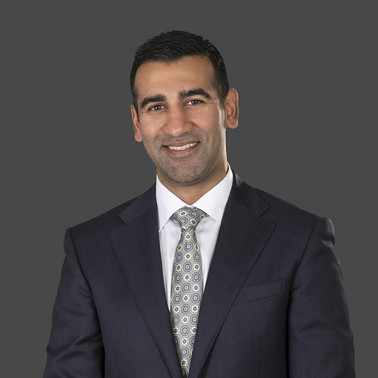Nordic Employment Law Bulletin - September
news
01 Sep 2022
Newsletter
In our monthly Nordic Employment Law bulletin our employment lawyers across the Nordic region highlight relevant news and trends on the Nordic employment market scene. The bulletin intends to provide high-level knowledge and insight. Want to learn more? Our experts will be happy to hear from you.

Highlights from Denmark
- New legislation on employment certificates and certain working conditions: The European Union member states had until the 1 August 2022 to implement the EU Transparent and Predictable Working Conditions Directive. However, many member states, including Denmark, have not completed or started the process yet. However, in Denmark, the proposed Act has now been presented. The proposed Act will apply to all employees working more than an average of 3 hours per week, or where working hours are unpredictable. Furthermore, the terms and conditions of the employment must be provided to the employee no later than 7 calendar days from the commencement of employment. We expect that the Act will enter into force on 1 January 2023.
- New amendments to the Act on Equal treatment of Men and Women: The amendments originates from a third-party agreement on how to fight sexual harassment in the working environment. The amendments have entailed that employees can receive tort compensation for sexual harassment, and the level of compensation is much higher than before.

Highlights from Finland
- Family leave reform entered into force 1 August – The new rules in the Health Insurance Act recognise equally all kinds of family situations, including those involving diverse families and various forms of entrepreneurship and self-employment. The aim is also that parental leave and care responsibilities will be evenly split between parents in two-parent families. After the reform, families will have more opportunities, freedom of choice and flexibility to take out parental leave. The new family leave provisions apply to parents expecting a baby whose due date is 4 September 2022 or later and to parents adopting a child if the child is placed in the parents’ care on or after 31 July 2022. The existing maternity, paternity and parental leaves will cease and instead going forward the family leaves during which the Finnish Social Insurance Institution (Kela) will pay allowance will be pregnancy leave and parental leave. Pregnancy allowance is paid for 40 working days and parental allowance for a total of 320 working days. If a child has two parents, the parental leave days are divided equally between both parents. A parent may transfer up to 63 of parental allowance days for the benefit of someone else. Partial parental allowance will be also possible. After the family leave periods, a parent may use fulltime or part-time child-care leaves as until now. Employers should also confirm from the applicable collective labour agreement if it imposes an obligation to pay salary to the employee during family leaves and whether the current provisions of the collective agreement will change due to the change in law.
- Whistleblowing – The Government bill regarding implementation of the Whistleblower Directive expected on week 38 in September 2022.
- Pay transparency – The drafting of legislation to amend the Act on Equality between Women and Men has been discontinued as the government parties did not reach consensus over the content of the proposal to amend the Act. The essential purpose of the proposal would have been to improve pay transparency which is included in the government programme.

Highlights from Norway
- Various changes to the Working Environment Act were implemented on 1. July 2022: The changes include:
- The general “try & hire” legal basis for temporary employment for up to 12 months set out in the Norwegian Working Environment Act section 14-9 (2) litra f) has been discontinued. This is the first of many of the measures that we expect from the government as they continue to advocate more permanent and direct employment relationships. The Norwegian government has also proposed several limitations to the regulations for hiring and leasing from staffing companies.
- Changes to the Working Environment Act re-introducing the access to collective lawsuits in the event of illegal hiring. Trade unions that have employees in an undertaking that has hired-in employees from temporary work agencies may now dispute whether such hiring is lawful. The trade union can dispute the lawfulness of the hiring without the participation of the hired-in employees.
- The general “try & hire” legal basis for temporary employment for up to 12 months set out in the Norwegian Working Environment Act section 14-9 (2) litra f) has been discontinued. This is the first of many of the measures that we expect from the government as they continue to advocate more permanent and direct employment relationships. The Norwegian government has also proposed several limitations to the regulations for hiring and leasing from staffing companies.
- Proposal regarding changes to regulations regarding the content of employment agreements: The Norwegian government proposes various changes to the rules regarding the written employment agreement as well as transparent and predictable working conditions. The proposed changes to regulations amongst other involve a significant extension of the requirements related to the content of an employment agreement which will require employers to update their template employment agreements. The proposals are on hearing until 20 October 2022.
- Court of appeal ruling regarding dismissal after providing written warning A unanimous court of appeal found that the dismissal of a bus driver based on his use of mobile phone in violation with the instructions from the employer, was not justified and the dismissal was therefore void. With the exception of one incident, the mobile phone use that the employer based the dismissal on had already been followed up on through written warnings. There were no new incidents of use of mobile phone after the written warnings had been issued. The fact that the employer had revealed another incident of mobile phone use contrary to the employer's regulations before the written warnings were issued, was according to the court not sufficient to change the warnings into to a notice of dismissal.

Highlights from Sweden
- Occupational injuries when working from home – The pandemic has brought with it a significant increase in the number of employees working from home on a part or full-time basis. As a result, the question of to what extent injuries suffered in the employees' home should be seen as work-related has become all the more important. In two similar cases, the Stockholm Administrative Court of Appeal recently reached opposite conclusions where an employee had been head-butted, in one case by his son, and in the other by his dog. The former was ruled to be work-related, but not the latter. The two cases will now be heard by the Supreme Administrative Court.
- Even more flexible working – On 2 August 2022, Sweden implemented the EU Balance Directive. The rules mean e.g. that employees who care for children up to eight years of age, and employees who care for sick relatives, are entitled to request accommodations in terms of flexible working, which could be e.g. scheduling of working hours or working from home.
- Working environment in the new economy – On August 25 2022, the Ministry of Employment has received a report (Sw. SOU) that the ministry commissioned on employer's responsibility for the working environment in the new economy. The report recommends, inter alia, measures to extend the responsibility for the working environment so that those who hire freelancers, self-employed workers, platform workers or subcontractors, in certain circumstances shall be responsible for the work environment of those persons. The changes are proposed to enter into effect on 1 July 2024. Watch this space for updates.
Download
Download as PDF






